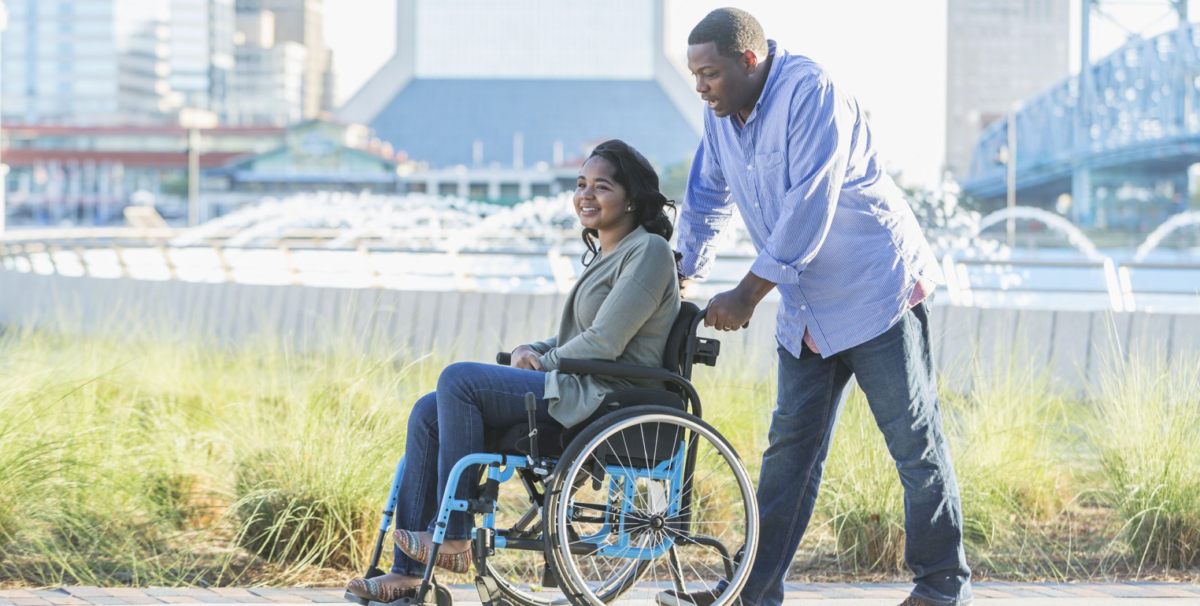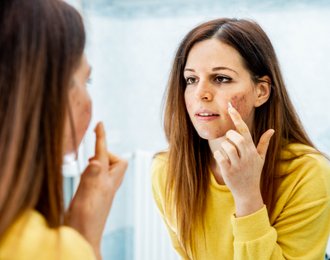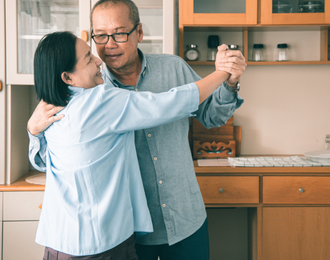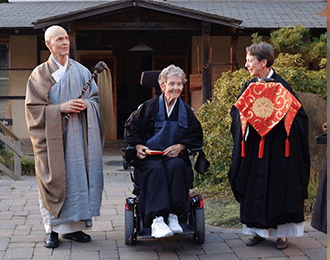What are the Signs of Caregiver Burnout Experts Say You Shouldn’t Ignore?

Being a caretaker is one of the most rewarding—and exhausting—jobs. Here’s how to cope.
By Marisa Cohen January 28, Updated February 4, 2022
If you’re a caregiver, you might feel strange letting yourself focus on your life and how hard this job might be on you—but it’s crucial you do, not just for yourself, but for your loved one.
An estimated 65 million Americans are caregivers for family members with dementia, physical or intellectual disabilities, chronic illness, or other challenges (that number is expected to continue growing as the population ages)—and 36% of those say the situation is “highly stressful,” according to a recent report from the AARP. Caregivers, who may or may not live with the person they care for, often take on these responsibilities while holding down a job, raising kids, paying bills…you know, all of the other full-time responsibilities of life.
The emotional and mental toll of caregiving may have hit an all-time high during the COVID-19 pandemic, leading many to experience caregiver burnout. “In the best of times, caregiving is incredibly stressful, and research has shown one of the biggest problems is isolation,” says Amy Goyer, the family and caregiving expert for the AARP and author of Juggling Life, Work, and Caregiving. “COVID increased caregiver responsibilities while taking away many of their opportunities to get out of the house and see other people.”
Think you might be experiencing caregiver burnout? Experts share the signs and symptoms that you’re tapped out, and overdue for a break.
What is caregiver burnout?
While taking care of someone you love can have tremendous rewards, it can also be unrelenting, leaving you emotionally drained, mentally depleted, and physically exhausted.
According to Merriam Webster, burnout is defined as “exhaustion of physical or emotional strength or motivation usually as a result of prolonged stress or frustration.” Meaning caregiver burnout is when a caretaker is emotionally and physically exhausted from their role.
Signs you might be experiencing caregiver burnout
When your focus is on caring for someone else, it’s easy to lose sight of your own well-being, say the experts. Watch for these signs you’re experiencing—or are close to experiencing—burnout:
You feel completely exhausted, mentally, and physically. If getting out of bed every morning is a much bigger challenge than it used to be, you don’t feel motivated to move from the couch, or you never feel truly rested, that could be a sign you’re experiencing burnout, says Sara Qualls, Ph.D., a professor of aging studies and psychology and director of the Gerontology Center at the University of Colorado, Colorado Springs.
You get irritated easily. When you’re reaching the end of your rope, you might find yourself snapping at the person you’re caring for—not to mention getting annoyed with your partner, yelling at your kids, and pushing away friends who try to help. “That irritability can be compounded by the guilt you feel for getting angry with the person you’re caring for,” points out Carol Rickard, LCSW, a social worker, stress-management consultant, and author of Stretched Not Broken: A Caregiver’s Toolbox for Reducing & Managing Stress.
Your health starts to suffer. “When stress builds up inside you as a caregiver, it has two places to go—it can either explode in anger and frustration, or it can implode, causing migraines, increased blood pressure, and other health problems,” says Rickard. In fact, research has shown that caregivers are at increased risk for diabetes, anxiety, substance abuse, heart disease, headaches, and joint pain. Goyer says she knew she was reaching a burnout point when her back went out.
Other areas of your life start to slide. Caregiver burnout can seep into all aspects of your life, including work-life, friendships, marriage, and finances. “I often ask people to compare how things are going in their life today, with how it was going a few years ago,” says Qualls.
You’re tempted to throw in the towel. A major red flag is when you’re contemplating just walking away, without any backup plan, and leaving your loved one to their own devices, says Goyer. This is the time to consider a major shift in your situation and explore other resources and options.
According to a report by the American Psychological Association, people who care for older relatives are more likely to experience depression, anxiety, and social isolation. They also have higher rates of chronic disease than people who are not family caregivers.
This is particularly hard on minority communities: The AARP report found that Black and Latinx caregivers, on average, devote more hours to taking care of disabled family members than the rest of the population, are younger when they begin caregiving and are more likely to live in the same home as the person they are caring for.
You’re experiencing burnout. What are your next steps?
If all (or even some) of the symptoms listed above seem to apply to you, it’s time to ask for help. Whether that’s from friends who can grab groceries for you, family who can take shifts caregiving, or finding professional in-home help, there are plenty of options. Take a look at more ways to cope with caregiver burnout to manage your stress while caring for others.
Try 200+ at home workout videos from Men’s Health, Women’s Health, Prevention, and more on All Out Studio free for 14 days!





